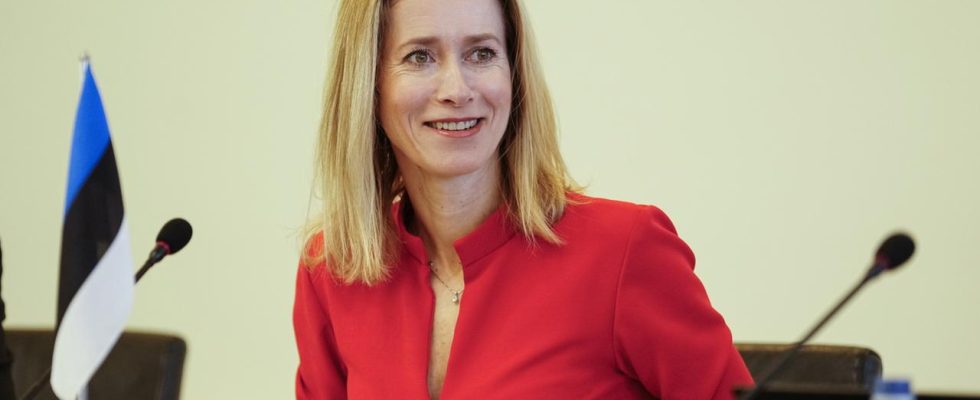Estonia’s Prime Minister Kallas is expected in Berlin today. With demonstrative calm, she campaigns for resistance against the Kremlin. She is familiar with repression by Russia from her family history.
When it comes to quick help for Ukraine, she is pushing ahead, pushing for more support for the country in the EU. This is probably also a reason why Kaja Kallas’ name appeared on a wanted list from the Russian Interior Ministry in mid-February.
Political scientist Kristi Rajk from the Estonian Institute for Foreign Policy is not surprised that Moscow is targeting the Estonian head of government. “She is one of the most visible and active Western heads of government since the beginning of the Russian invasion,” says Rajk. “She calls for a joint strong response, both in terms of sanctions against Russia and support for Ukraine. Kallas also wants to ensure that Russia bears responsibility for war crimes.”
Grandfather and father were politicians
However, the wanted list does not seem to impress the Estonian head of government. Kallas said in February that she did not want to be intimidated by Putin daily topics. “He wants us to be afraid, but that would mean giving him what he wants. So we shouldn’t be afraid.”
Kallas comes from an influential Estonian family. Father and grandfather played a key role in shaping the country as politicians. This is one of the reasons why she initially chooses a different path and pursues a career as a lawyer. In the economically liberal Reform Party, things progress quickly as a member of the European Parliament – and then as the first woman to head her party.
Family history as an incentive
Since 2021, Kallas has been Prime Minister in the country, which has a direct border with Russia and is home to a large minority of Russian origin. “When Russia occupied Estonia, they deported Estonians to Siberia and brought Russians into the country. My own family was also deported to Siberia,” she once said. “At the end of the occupation, the Russian minority amounted to 30 percent.”
Her personal family history is also her motivation: it represents what many Estonians have experienced, says Kallas. The Russian attack on Ukraine has changed many Balts’ sense of security and opened old wounds. With her clear stance, Kallas encourages her compatriots.
Despite being on the wanted list, she still doesn’t want to mince her words. “Putin is clearly using this as a weapon to spread fear and show that we are not a real country. He is blaming me for things that are actually internal Russian matters. But we are an independent country. That shows that he “I have imperialist dreams and thoughts. But yes, when this became known, many people told me that it was a medal of honor. I must have done something right if the Russians are so mad at me.”
Risk due to wanted list low
She’s not afraid, says Kallas. And there is no reason for that, says political scientist Rayk. Because it is unlikely that the wanted list will have any consequences – Kallas and other people on the list would not travel to Russia anyway. They also would not travel to countries that are closely allied with Russia. You may be at risk of being arrested in countries like Belarus, Iran or North Korea.
Russia’s move was therefore more of a symbolic nature. But Kallas will remain in Moscow’s focus as a harsh critic.
Julia Waschenbach, ARD Stockholm, tagesschau, March 18, 2024 5:49 p.m

